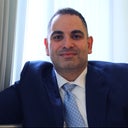Risk typically has two components.

